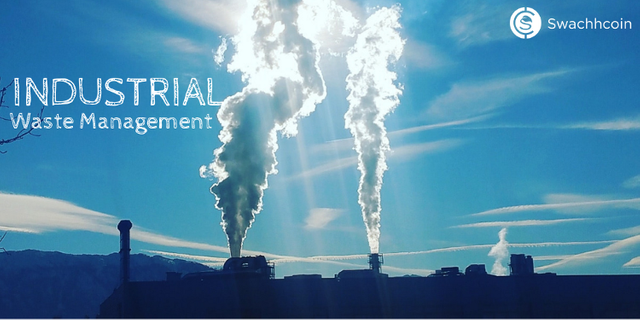Manage Waste Industrial from SCX

Segregation
Industrial wastes such as plastic, glass, and paper are recyclable. As such, a company should segregate this waste from bio-degradable wastes, hazardous waste, and strong non-hazardous waste. To do this, the factory or company should determine the recyclable material and also the set up another waste collection system in their opinion. This may be achieved by providing a recycling bin or dumpster in the mill or business.
Utilize Landfills
After sorting the waste, the factory or company should dispose of non-hazardous waste that cannot be recycled to landfills. A landfill is a restricted area where wastes are buried and compacted under the surface of the planet. As the buried wastes decompose or degrade, it releases gases which may be utilized to create electricity or fuel. As such, burying waste in landfills has been widely embraced as it's cost effective and secure. But, landfills are limited since they're made to accommodate a particular quantity of waste.
Composting
You will find compostable industrial wastes that can be transformed into fertilizers and manures. Some industrial wastes which fall into this category are food waste, newspaper, leaves, sawdust, straw, and cardboard. These compostable wastes can be added into the soil processed or directly to fertilizers to help improve the nutrient level of the soil. As such, you're both getting rid of waste and enhancing the environment
Recruit Industrial Waste Management Firms
Rather than undergo the rigorous processes of sorting and composting waste, a company or manufacturer can enlist the support of industrial waste control firms. These businesses are specially created to manage industrial waste, as this type of factory can save itself the stress of tracking and handling waste. However, it is necessary to do an in-depth evaluation of the waste management company as some are known to adopt waste management strategies which solely focus on reducing the operating price. Recruiting such companies will defeat a manufacturer's waste management objectives.
Why Should Industrial Waste Be Managed?
It Is Very Good For Your Environment
Uncontrolled disposal of industrial waste can result in environmental pollutions and irreparable damages. The soil, water, and air near industrial wastes dumpsites are regarded to be quite bad for humans and animals. Therefore, disposing of industrial waste the right manner will stop against this event.
Legal Liability
Manufactures are governed by policies which require them to eliminate industrial ways the ideal way. Therefore, violating these principles is illegal and could lead to expensive reparations.
Conclusion
Handling industrial waste is among the strategies to protect our environment from harmful pollutants. Therefore, companies and manufacturers should be held accountable for the waste that they generate.